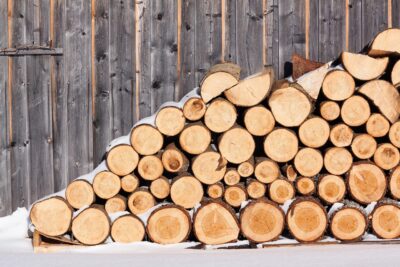Indonesia – In anticipation of the EU Deforestation Regulation (EUDR), officials are releasing comprehensive forest cover data, according to Minister Siti Nurbaya Bakar. The data was generated by the National Forest Monitoring System, also known as the “Simontana”.
“From now on — until the end of this year — it is important to correct the EUFO map so that Indonesia’s country risk assessment claim can be in the low category and the origin of commodities will not be included in the category of deforestation and land degradation areas,” Minister Bakar said.
While speaking during a focus group — “Deepening Sectoral Legality and Sustainability in Forest Areas in the Context of a Deforestation-Free Supply Chain” — the minister stressed the importance of presenting accurate forestry data if Indonesia is to contribute to deforestation solutions on a global scale.
She announced that the ministry was also able to amend inaccurate deforestation data that was released by the World Resources Institute.
India – According to Union Minister for Housing and Urban Affairs, Hardeep Singh Puri, India is poised to become the third-largest construction market in the world within the next year, trailing only the U.S. and China. Accounting for nine percent of the country’s gross domestic product, the construction industry is India’s second-largest employer.
The boom led to the best quarter the Indian market has experienced in nearly a year-and-a-half.
The construction industry encompasses two main branches: real estate and urban development. The real estate segment includes residential, office, retail, hotel and leisure projects, while the urban branch develops infrastructure: sanitation, public transportation, utilities, schools and hospitals.
The July to September 2023 quarter saw construction grow by 13 percent year-over-year and it is estimated that industry output could reach US$1.4 trillion by 2025. Fordaq reports that this growth is anchored by a housing shortage in major real estate markets, higher incomes, rising population and the government’s recent focus on infrastructure development.
The October to December 2023 quarter saw the GDP climb by 8.4 percent and the government updated its GDP growth forecast for the year— ending in March 2024 —from 7.3 percent to 7.6 percent.
Minister of Finance Nirmala Sitharaman recently announced that the 2024-2025 budget will include an increase for infrastructure development worth 3.4 percent of the GDP.
Germany – The wood industry continued its decline with reported sales showing a 7.8 percent drop in February (the latest data available at press time) compared to the same month last year. This decrease contributes to a 10.1 percent overall drop in sales in the first two months of 2024 compared to the same period last year.
The drop in the market is represented by losses in multiple sectors: the sawmill industry saw a 15.4 percent decline, wood-based materials dipped by 15 percent and the wood packaging industry recorded a 17.8 percent decrease in nationwide sales.
The furniture industry took a 7.8 percent dive, and the construction-related area of the wood industry is reported to be 6.2 percent below the mark set by the previous year.
Africa – At the time of this writing, heavy rains affected timber workers ability to harvest in Gabon.
Mills are reporting a decrease in logs; especially Okoume. Although there has been an increase in demand from Asian markets, producers are also reporting a short supply of sawmill-grade logs.
Asian demand, especially in China, is represented by increased sales of Bilinga, Avous, Okan, Movingui, Sapelli and Okoume. The Philippines also show a notable increase in demand.
In Northern Congo, heavy rains present logistical challenges that are ultimately affecting harvesting operations.
Counter to these challenges, Okoume harvesting has resumed in an effort to keep up with the increase in Chinese demand.
Cameroon, however, is experiencing an extended dry period that is expected to clear the way for unrestricted harvesting until June. Fordaq reports that regional stock has approached “normal levels with approximately two months required in readiness for the upcoming rain season.”
In further response to Chinese demand, Cameroonian producers report growing interest in Bilinga, Padouk, Iroko, Movingui and Sapelli.
Thanks to improved weather conditions in the region, both trucking and railway networks are working unimpeded, and no disruptions have been reported at Doula Port.
Timber sourced from Northern Congo and the Central African Republic is also reporting minimum interruption in shipping.
Europe – Fordaq and Global Traceability Solutions have announced the release of their new EUDR compliance digital platform Radix Tree.
Radix Tree is a resource for workers in the forest products industry that will assist in the implementation of supply chain management — including tracing forest products back to their source — and help them better comply with the EUDR.
“Global Traceability has a long experience serving the EUTR needs of importers of wood products. The new Radix Tree Platform provides all the features needed to document supply chains, mitigate risks and provide the traceability information needed for EUDR. We have reviewed a large part of the solutions on the market and are confident of our choice to work with Global Traceability. We hope that together we will be able to serve the needs of our clients to comply with EUDR,” said Benoit Nieuwenhuys, CEO of Fordaq SA.









